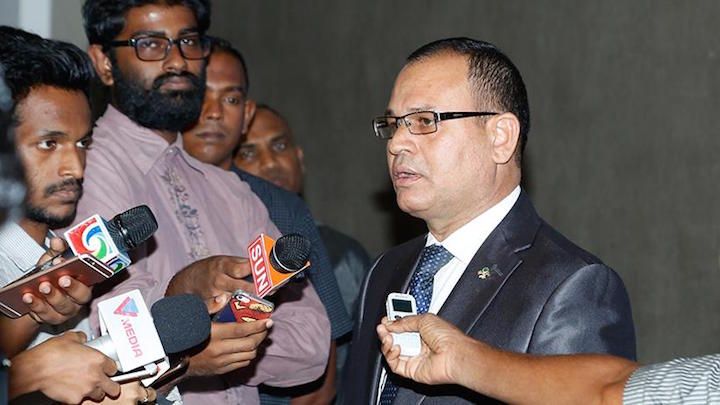Some Jihadi recruiters ‘identified and under surveillance’
The government has identified individuals suspected of recruiting Maldivians for militant extremist groups fighting in the Syrian civil war, Defence Minister Adam Shareef Umar revealed today.

23 Jun 2016, 09:00
The government has identified some individuals suspected of recruiting Maldivians for militant extremist groups fighting in the Syrian civil war, Defence Minister Adam Shareef Umar revealed today.
“They are under surveillance, their whereabouts are being monitored,” Shareef told The Maldives Independent.
But the government will not use the anti-terrorism law to electronically tag the suspects until “enough evidence” is gathered, he added.
No arrests have been made so far.
Become a member
Get full access to our archive and personalise your experience.
Already a member?
Discussion
No comments yet. Be the first to share your thoughts!
No comments yet. Be the first to join the conversation!
Join the Conversation
Sign in to share your thoughts under an alias and take part in the discussion. Independent journalism thrives on open, respectful debate — your voice matters.




